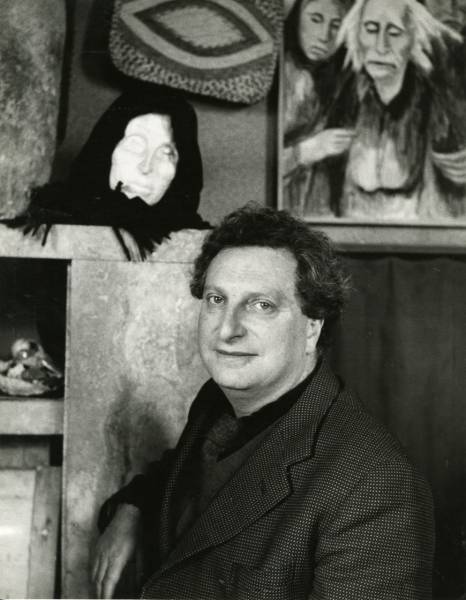
 Vito Angelo Colangelo
Vito Angelo Colangelo
Carlo Levi was sent to confinement in Lucania 85 years ago for his aversion to the fascist regime. Ten years later he recounted his experience in "Cristo si è fermato ad Eboli", a book that shook the national literary world and soon went around the world.
But what were the reasons for that immediate and sensational success, destined to last over time and become global?
Émile Poulat (Lyon, 1920 - Paris, 2014) thought of attributing its fortune to the originality of the title and explained that "ce titre est une trouvaille. Il frappe immagination: impossible de l'oublier". One can certainly agree with the French historian and sociologist that the title was a gimmick, capable of striking the imagination to the point that it is impossible to forget it.
But it is evident that the reasons for the book's success are much more consistent and depend on the literary value, the poetic force, the energy of the political denunciation of what Rocco Scotellaro called "the most passionate and cruel memorial of our countries".
In the original work of Carlo Levi, the narration of events, socio-anthropological analysis, the aesthetic representation of the landscape and, at times, an anxious lyrical evocation coexist happily. The book thus reveals the many facets of Lucanian reality, which in appearance is marked by a bare simplicity, but in fact possesses an intriguing complexity and a strong identity. Such, at least, the Lucan peasant world manifests itself to the curious and penetrating eye of the Piedmontese artist, who was suddenly catapulted there from the remote industrial city of Turin.
Carlo Levi with rare human and artistic sensitivity grasps that in the life of peasants, history and magic, skepticism and superstition, religion and incredulity, evidence and mystery coexist, and sometimes merge in an indistinct magma. The peasant life is a life tormented by pernicious malaria and by secular misery, accepted with the same patience and resignation with which the oppression of the narrow local bourgeoisie and the authority of the state are tolerated. But it is also animated by deep and authentic feelings and values. That world, closed in an eternal stillness and in an unpredictable pain, appears dark and elusive. Yet Levi is attracted to it and induced by it not only to be in solidarity with it, but also to reflect on the eternal question of the South, which he had already dealt with a few years earlier, at the request of Piero Gobetti.
It is not surprising, therefore, that the "Cristo" was welcomed from the first moment as an extraordinary book and that its fame has attracted the attention of Italian and foreign scholars, economists, ethnologists, anthropologists to Lucania. It can be said that Levi's masterpiece was the forerunner to the initiatives of Adriano Olivetti and to the investigations of various kinds conducted on the field by Edward C. Banfield, George Terhune Peck, Ernesto de Martino, Tullio Tentori, Ludovico Quaroni, Henri Cartier-Bresson, Friedrich George Friedmann.
Finally, a final remark is necessary. Carlo Levi had an important role in promoting a policy of rehabilitation and recovery of the Sassi, whose degraded life he had given a crude representation in the "Cristo". Indeed, it must be recognized that, if the Sassi became a UNESCO World Heritage Site in 1993 and Matera European Capital of Culture in 2019, great merit goes to the Turin writer, who since the 1950s had attracted the world's attention to the city he defined"Peasant capital".

Sono arrivato a Gagliano un pomeriggio di agosto, portato in una piccola automobile sgangherata. Avevo le mani impedite, ed ero accompagnato da due robusti rappresentanti dello Stato, dalle bande rosse ai pantoloni e dalle facce inespressive. ...
dal Cristo si è Fermato ad Eboli